- Home
- George R. R. Martin
Joker Moon Page 11
Joker Moon Read online
Page 11
I tried to use the chair frame, but it was almost too heavy to move, and when I stood on it, it rocked and tilted.
“Nope,” Theodorus said. He took another look around his room, a slow, ponderous process that made me feel sorry for him again. Theodorus sounded young, but he moved like an old elephant. I think he was still adjusting to his newfound bulk. “Why don’t I just—?”
He positioned himself under the model and reached for it.
Crushing it with his human-looking but joker-powered hand. “Oh god!” he said.
Pieces of the Almaz scattered on the floor.
I almost slammed into Theodorus trying to pick them up. I did rescue the larger pieces, and there were only half a dozen. “Look,” I said, “a little glue and good as new.”
I was lying, however: no amount of glue was going to un-crush the Almaz pieces.
Theodorus just sat there sobbing. “I’m so…” He wanted to utter a curse word but was too well brought up to do that in front of me.
“Fucking clumsy?” I said.
He laughed as he wiped his tears. “I haven’t gotten used to this. I mean, I know how to eat and get around, but sometimes … the little things.”
“When did it start?”
“I was almost fourteen,” he said.
“Two years ago.”
That big head slowly bobbed up and down.
I understood. I was the same age, thirteen rising fourteen (and for years I have wondered if puberty was a wild card trigger) and living a nat life with my parents in the Santa Ynez Valley, just north and inland from Santa Barbara. It was ranch country, one of the most beautiful landscapes in California or anywhere (something I could not appreciate until years later). My mother taught junior high in Solvang; my dad managed a hotel. My mom was a native, having grown up in Los Olivos; my dad was from Iowa and came to the area just prior to WWII, searching for a life that had nothing to do with dairy farms.
I was an only child, smarter than most, based on my grades (and my mother’s embrace of education), athletic enough to fit in with the other boys in the neighborhood—but also obsessed with toy soldiers as well as ship and airplane models. Yes, I had Jetboy’s JB-1, but rarely used it, preferring the North American P-51 Mustang, as any sane human would. (The P-51 was victorious.)
Early in the summer of 1955, not long after school ended, I came down with a fever after a camping trip. In another time, my parents might have suspected a bugbite, but not since Wild Card Day. They had me at the clinic within hours, ran a T-test, and heard the news that my card was turning.
The usual protocol was a hospital stay in the wild card unit, but the Solvang Hospital was too small. And my parents wanted me home. The doctor warned them that I might turn into something “challenging,” the 1955 code for monster joker, but they insisted.
Then … home to wait.
I knew none of this at the time—I was simply told I had the flu, though I had my suspicions: everyone in my eighth grade class knew of a girl in Buellton who had been stricken in the past year, turning into a kind of butterfly (according to one account) or a dragonfly (most others).
When I awoke from the fever, I found only my father in the house. My mother had been stricken with that season’s flu, and it had killed her in two days. You can imagine my grief and, for years thereafter, sense of blame.
Another thing—while I knew I had been infected with the wild card virus, I didn’t know what the hell it meant or how it manifested. For the first few weeks, I kept hoping for some kind of mental power, the ability to peer into other minds, for example.
I only learned the truth when my father, emerging to some extent from his mourning, finally decided to discard my mother’s clothing and other possessions. Including a chest of drawers that he, with considerable strain, moved alone from the bedroom to the front door. “Give me a hand,” he said, and I did just that, literally. I barely touched the chest and it rose to eye level.
And then thumped down with a bang. “What was that?” my father said.
In the next few moments I demonstrated to myself, and my father, what the wild card had given me—the basic ability to overcome mass with a touch. I could lift almost anything indefinitely, it seemed, though heavy objects and great distances tired me out. In the right circumstances, I could launch an object, too—all I needed was to hold on to it, or as we’ve seen, him, long enough to create some momentum.
My father was as relieved as I was to know that this was the worst of it, or so we believed. (The joker side effects turned out to be clinical depression and alcoholism, but it would be hard years before I realized that.)
Through my teens and into my college years I was able to make use of my power to lift—hiring myself out to various construction firms in the Santa Ynez Valley.
I paid for college that way, but eventually found the work boring and nowhere as lucrative as illegal activities.
Looking at Theodorus, I floundered for a safe subject to raise. “Is there something you can do?” With his physical state, I meant.
“You mean, other than break things?”
“That could happen to anyone.”
“All I know is … I used to be normal, now I’m this.”
That was the saddest thing I’d heard in a long time.
I had dinner alone in the servants’ kitchen and was back in the guesthouse top bunk pondering my next lessons when I heard scuffling in the gravel outside.
I found Ridley climbing up on Quicksilver. “Nice walk?” I said.
Never one to return sarcasm for sarcasm, Ridley said, “Caught a lift outside the front gate.”
“What did you do?”
“Saw the sights. Fort Sumter.”
“Good?”
He shrugged as he kept running his hands over the pitted, discolored skin of Quicksilver. “Seen a few forts by now.” That was true: bored and stuck in Baltimore over a weekend last autumn, Ridley and I had actually toured Fort McHenry.
“How’s your money holding out?” I was battering him a little, but that’s what one does with Ridley. And I felt like shit because he’d been banished.
“Still good.” He was staring up at Quicksilver.
“You have a plan.”
He nodded. “She needs fixing.”
“That’s been true since you started working with me.”
“You weren’t flying her ’til now.”
“That was a onetime thing,” I said. “I hope.”
“Never know. But there’s at least one leak on the top side. If water gets in, air gets out.”
“Come on, even if I have to fly out of here, I’m not going to ten thousand feet, much less into space.”
“She ought to be flightworthy and looking good.” He nodded toward the house. “For the kid, if nothing else.”
“Fixing the skin will cost money.” It wasn’t an especially exotic metal, and, heck, you could certainly patch from the inside with almost anything. “Not to mention batteries and anything else the systems need.”
“I’ve got some stashed here and there.”
“You’re not spending your money on repairs. We’ve got extra on this gig, so we’ll use that. And it’s not like I have other plans for it.”
That seemed satisfactory. “I’ll take the cab into town and see what I can scare up. Then come back with a bid and my hand out.”
Thus occupied for the next week or three, Ridley grinned. “I bet I missed dinner.”
“There’s probably something in the kitchen fridge.”
He grinned some more and ran inside, leaving me to return to that lingering issue of … other plans.
During many a long drive, I had asked myself where Ridley and I were headed, separately or as a team. Ridley’s money nests suggested a plan for some kind of retirement, though dribs in savings accounts was no strategy for wealth creation.
At that, he was ahead of me. I had gone on the road in 1973 and a simple extrapolation of my life, health, and prospects would see me dead i
n a trailer camp around the year 2000.
Or, given recent events, in jail.
Either way, broke, and lonely.
The next afternoon, after another amusing session with Theodorus that had to be cut short by the arrival of other tutors, I chanced to see the strange girl again.
I was passing through the kitchen in search of a fortifying afternoon snack when, glancing out the window, I chanced to see the crimson elfin girl walking toward the house with Malachi Schwartz in pursuit.
He caught up with her, grabbed her arm, and spun her to face him—
“Something I can help you with, Mr. Mitchell?”
Then she saw what I saw out the window.
“Who is she?”
“I don’t believe I have any information for you.” And then it struck me that Dorothy thought I was fantasizing about the girl. This has happened to me often enough that I know protests are futile, and only make matters worse. I thanked Dorothy and made my exit.
It was our fourth afternoon, three days after Ridley drove out with the cab and did not return, nor make contact. This wasn’t unprecedented, and in fact I was relieved, since I didn’t have to feel guilty about his third-class treatment.
As I was walking toward Theodorus’s room I heard several new voices, younger, and upon entering found three teens present. Two were boys, one large and either shy or sullen, the other short, lively, and socialized. “You must be Mr. Mitchell,” he said, offering a hand. “I’m Tom, that’s Eric—” The big lump in the corner.
“And I’m Mathilde,” said the third, the crimson elfin girl I had seen twice already. She had a lovely French accent.
I realized that they were talking about going to the local ballpark for a Pilots game, clearly their first group outing in a long while. I tried to be innocuous as they discussed transit challenges and the like, realizing that Theodorus’s wild card had deprived him of friends his age.
Midway through this conversation—a painful one to listen to, with three of the four individuals using the word like as an all-purpose adjective, adverb, or interjection—I sensed a change in the mansion environment.
You know this: Once you’re in a house or apartment for even a few days, there is a certain level and type of sound that says all is as it should be. There is often, and there definitely was in the Witherspoon mansion, a sort of electronic hum that had grown familiar.
But now I heard hurried footsteps.
A door opening and closing.
I heard voices, not words.
Eric did, too. “What’s going on?”
I slid past the teens toward the windows, but they looked over the rear of the house.
Then there was a knock at Theodorus’s door. In spite of his bulk, he reached it before I did. It was James saying, “It’s the police.”
The three visiting teens looked at each other with alarm, the usual teen fear that, whether you know it or not, you did something wrong. Theodorus, however, lit up like a Halloween pumpkin. “Where from? How many?”
James had no idea about where the lawmen came from, but was sound on the number. “Two.”
“Nat and J, or two of a kind?” Theodorus asked. It took me a moment to realize that this was police slang for the nat/joker teams frequently found in your bigger cities. He explained, “My favorite TV show is J-Street Blues.”
“They appear to be nats.” Which made things slightly worse for me.
And now both of them looked at me. Well, I would have, too. “Time to face the music,” I said, and meant it. “Nice meeting you all. Sorry for the circumstances.”
“Cash,” Theodorus said, “you can still escape!”
That made me feel quite affectionate toward Theodorus: he could still dream for others if not for himself.
James held the door, however. I believe he was eager to see me dealt with. “If I don’t see you again, Theodorus, it’s been fun! Keep dreaming!”
Out I went, feeling unusually fearful and even embarrassed that these three teens were present. And hoping that Ridley was far away and safe. I had yet to reach the top of the stairs when Alice intercepted me, taking me by the arm and guiding me into a bedroom. “This way.”
I was happy for the interception for two reasons, the lesser of them being any delay in my arrest and removal to the grimmer parts of Kentucky.
I was about to speak, but Alice actually placed a finger on my lips. I could have remained in that awkward but delicious state for some time, but within seconds we could hear raised voices from outside—the windows were open.
Standing nose to nose a foot apart, we waited. I was, shall we say, acutely aware by now that I was attracted to Alice Witherspoon—sufficiently so that had she leaned closer I would have eagerly kissed her, even knowing it was oh so wrong, not to mention impolite.
It may have been the moment, but I had the feeling that she shared the impulse.
Whatever might have happened didn’t—we were distracted by the commotion outside, which was soon punctuated by slamming car doors and the sound of a vehicle driving away.
“That sounds promising,” I said.
Alice instantly ran to the window. “They’ve gone.”
I heard footfalls that I already recognized as belonging to Schwartz. He pushed the door completely open. “They have departed without incident,” he said. “You are free to emerge.”
He clearly meant, to me, get the hell out of here.
Alice said, “Malachi, what happened?”
As we exited the room, then hurried downstairs, we found Theodorus in the driveway, all half-ton of him in his baseball jersey, which was soaked with sweat. Wide-eyed with curiosity and, I think, admiration, Tom, Eric, and Mathilde were behind him. Theodorus was jubilant. “Cash, did you see?” He had put the run to a pair of South Carolina state troopers.
“I heard,” I said, exaggerating only slightly.
It turned out that two state troopers had knocked on the door, announced that they were looking for Cash Mitchell and Ridley Hough in connection with, etc.
One of them had stepped away from the door and started to walk around the house, where he surely would have seen the Quicksilver truck and RV.
Schwartz had been summoned by the retainer, but before the joker could work his magic, Theodorus had come roaring around the north side of the house, direct from his elevator.
For the two troopers, it must have been like facing an elephant charge.
In fact: “One of them reached for his revolver!”
That alarmed all of us.
“I don’t believe he actually unholstered his weapon,” Schwartz insisted.
“Did you say anything?” I said.
“I just roared.”
“What in God’s name did you hope to accomplish?” Alice said.
“To get them to run away.” He smiled. “And they did!”
We all exchanged glances. Theodorus had won a small victory, but only by exploiting the automatic fear of strange jokers. I felt sorry for any joker unlucky enough to get pulled over by those two cops.
Alice nodded toward Theodorus’s elevator. “I think you’ve had enough excitement for one day, young man. Time to get cleaned up for dinner.”
“And we should be going,” Tom said.
“Wicked work.” Eric uttered his first actual words.
“See you guys later, then,” Theodorus said. The boys climbed into a beat-up Ford.
“Mathilde,” Schwartz said, “inside.”
“Oui, Papa.” And she ran into the house. I realized then that she was not only happily at home when visiting the estate, living at the estate, she was Schwartz’s daughter. Theodorus shuffled off, clearly proud and happy. I hope he didn’t see the pity on my face or on his mother’s.
Oblivious to the teenage hormonal drama, Schwartz was about his business. “This won’t stop them for long. They’ll be back with warrants and reinforcements.”
“I think not,” Alice said. “I’m calling Bryce. And Cash … please join us for din
ner.”
She ran into the house and Schwartz said, “To save you the obvious question, Bryce is Mrs. Witherspoon’s brother. He is chief of the Charleston Police Department.”
“I see.”
“He is a man of strict adherence to the law, except where family is concerned—and especially where outside elements intrude.”
“I have another obvious question—”
He let it hang.
“Mathilde is your daughter.”
“One might assume I already knew that.”
“What is she doing here?”
“Mathilde is a valued member of our household. She will be joining you at dinner.” He clearly planned to say no more.
As we entered the house, I said, “How do I dress for dinner here?”
“This is not the 1920s, Mr. Mitchell. A simple sport coat will do.” He took extreme relish in relating that. His manner suggested that he violently disapproved, that he rarely dined with the family.
Fortunately I have a sport coat. One.
“Oh, by the way … Mr. Witherspoon will be home.”
I returned to the RV to clean up and to wonder where in God’s name Ridley was. If roaming Charleston and environs, he was subject to arrest, and he wouldn’t have Malachi Schwartz or Theodorus Witherspoon to save him.
Henry Witherspoon was not what I expected.
Having met Alice I had naturally made assumptions about what manner of mate she would have, and was prepared for a handsome scion of the South: tall, Aryan, all of that. Perhaps with a mustache, possibly drunk.
Instead I shook hands with a pudgy gent several inches shorter than me, with a receded hairline and glasses. I wondered how on Earth he had managed to land Alice Dayton, whom I pictured as a rich debutante with a penchant for stealing Daddy’s cars and flirting with the most eligible and non-eligible men of all ages.
Not with this … well, accountant in front of me.
Perhaps I had let my fantasies run away with me.
“Hello, Cash,” he said, in a voice with no notable accent. “Alice and Malachi tell me you’re being vastly helpful to Theodorus.”
“I hope so.”
“Can’t tell you how pleased we are to have such a celebrity here.”

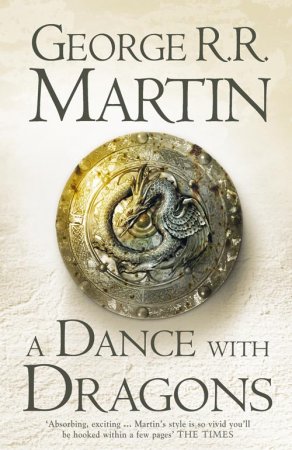 A Dance with Dragons
A Dance with Dragons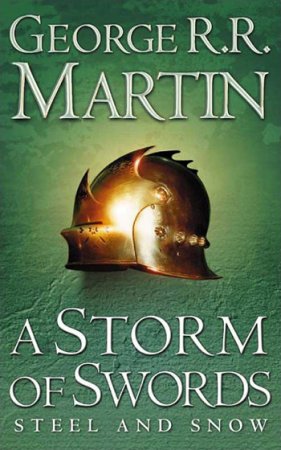 A Storm of Swords
A Storm of Swords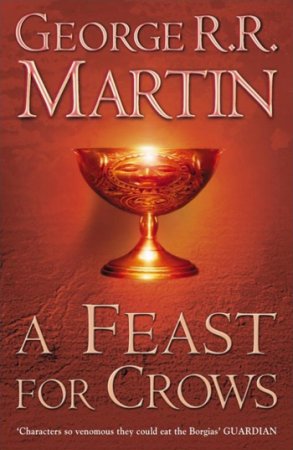 A Feast for Crows
A Feast for Crows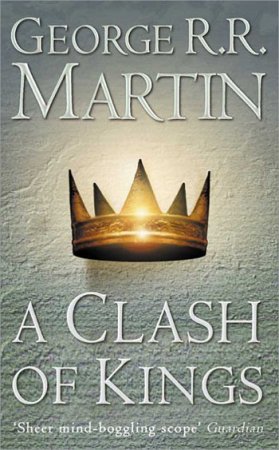 A Clash of Kings
A Clash of Kings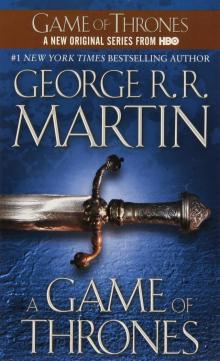 A Game of Thrones
A Game of Thrones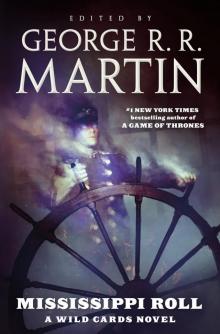 Mississippi Roll
Mississippi Roll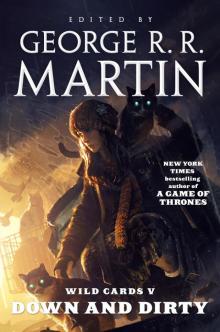 Wild Cards V: Down and Dirty
Wild Cards V: Down and Dirty Busted Flush
Busted Flush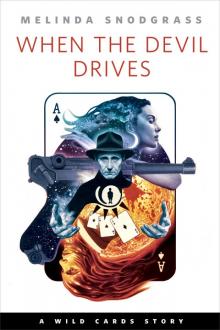 When the Devil Drives
When the Devil Drives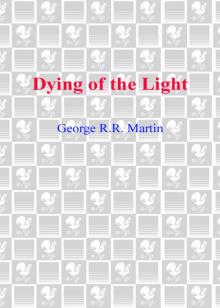 Dying of the Light
Dying of the Light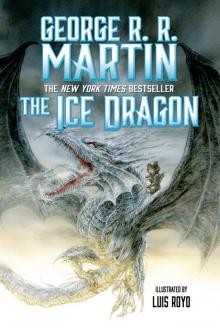 The Ice Dragon
The Ice Dragon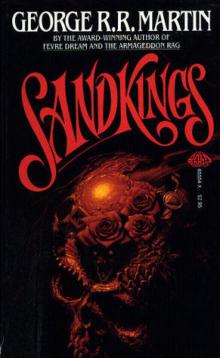 Sandkings
Sandkings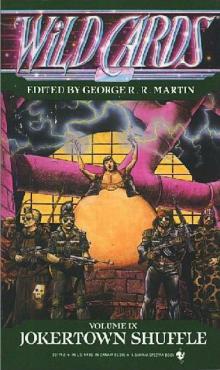 Jokertown Shuffle
Jokertown Shuffle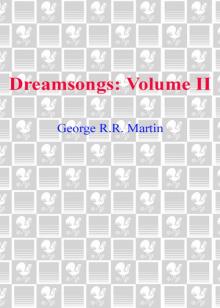 Dreamsongs. Volume II
Dreamsongs. Volume II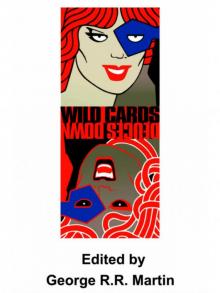 Deuces Down
Deuces Down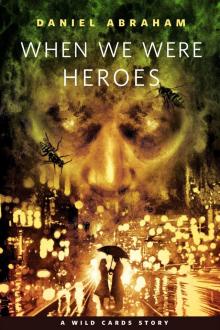 When We Were Heroes
When We Were Heroes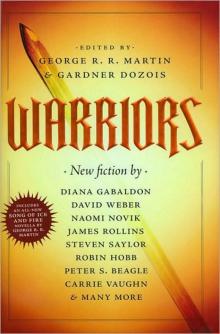 Warriors
Warriors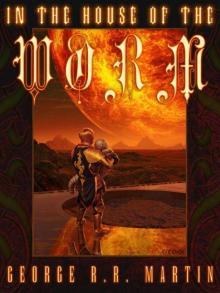 In the House of the Worm
In the House of the Worm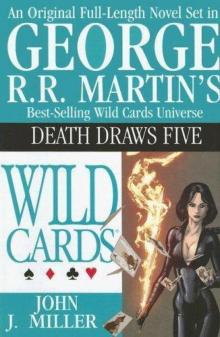 Death Draws Five
Death Draws Five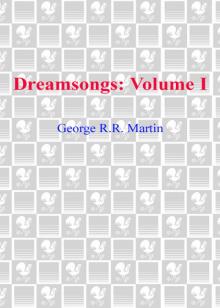 Dreamsongs. Volume I
Dreamsongs. Volume I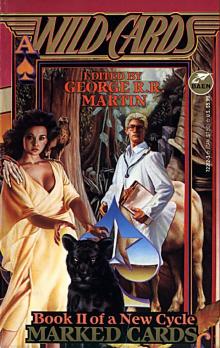 Marked Cards
Marked Cards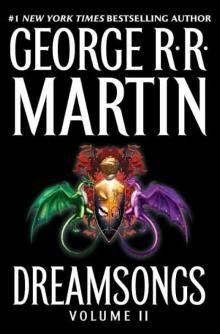 Dreamsongs
Dreamsongs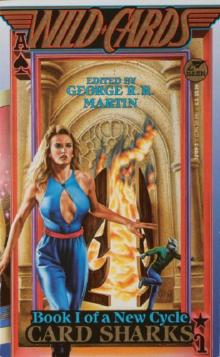 Card Sharks
Card Sharks Dangerous Women
Dangerous Women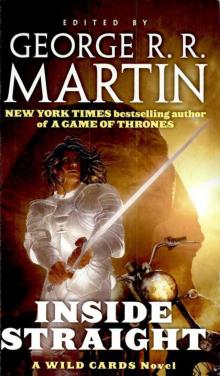 Inside Straight
Inside Straight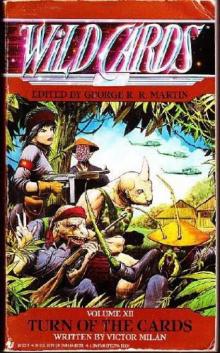 Turn of the Cards
Turn of the Cards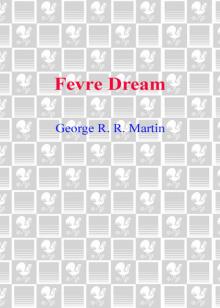 Fevre Dream
Fevre Dream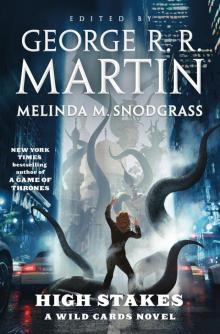 High Stakes: A Wild Cards Novel
High Stakes: A Wild Cards Novel Windhaven
Windhaven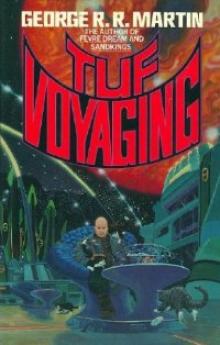 Tuf Voyaging
Tuf Voyaging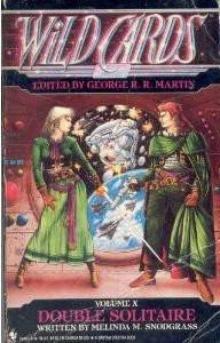 Double Solitaire
Double Solitaire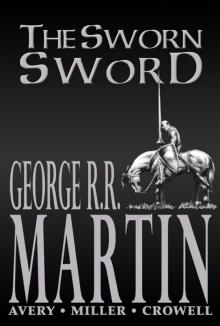 The Sworn Sword
The Sworn Sword Low Chicago
Low Chicago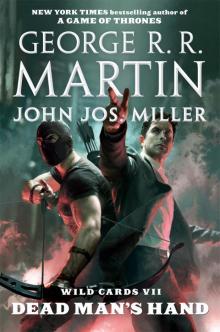 Dead Man's Hand
Dead Man's Hand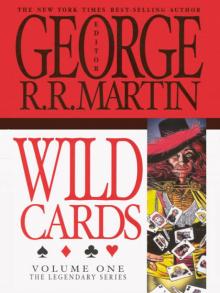 Wild Cards
Wild Cards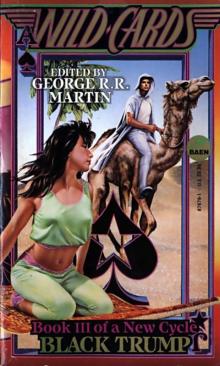 Black Trump
Black Trump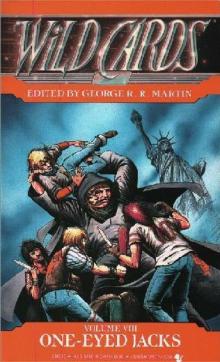 One Eyed Jacks
One Eyed Jacks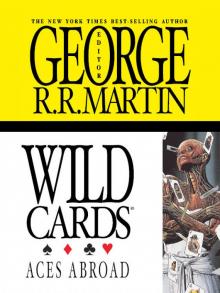 Wild Cards: Aces Abroad
Wild Cards: Aces Abroad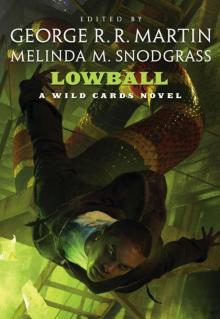 Lowball: A Wild Cards Novel
Lowball: A Wild Cards Novel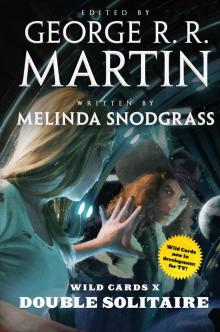 Double Solitaire (2019 Edition)
Double Solitaire (2019 Edition)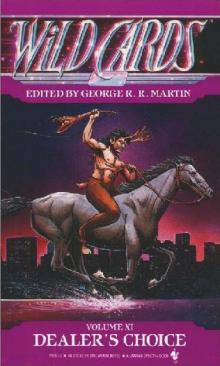 Dealer's Choice
Dealer's Choice Ace in the Hole
Ace in the Hole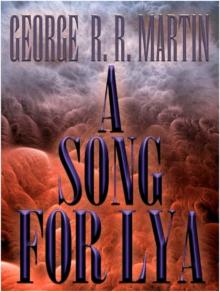 A Song for Lya: And Other Stories
A Song for Lya: And Other Stories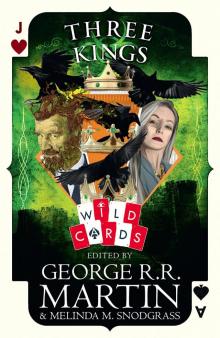 Three Kings
Three Kings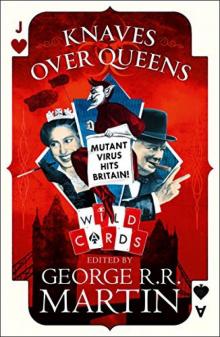 Knaves Over Queens
Knaves Over Queens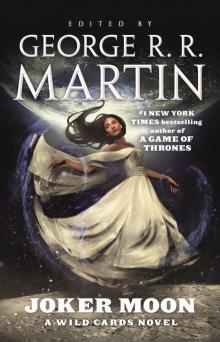 Joker Moon
Joker Moon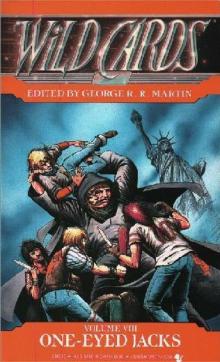 One Eyed Jacks wc-8
One Eyed Jacks wc-8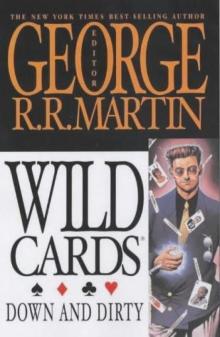 Down And Dirty wc-5
Down And Dirty wc-5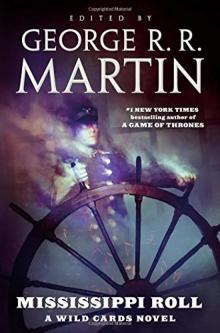 Mississippi Roll_A Wild Cards Novel
Mississippi Roll_A Wild Cards Novel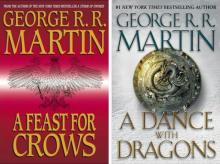 A Feast for Dragons
A Feast for Dragons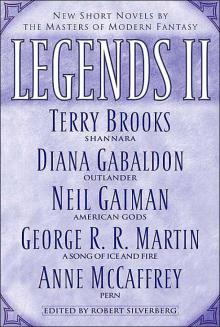 The Sworn Sword ttodae-2
The Sworn Sword ttodae-2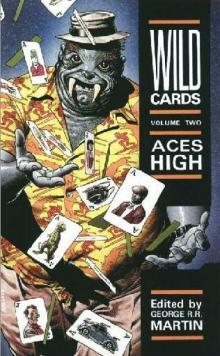 Aces High wc-2
Aces High wc-2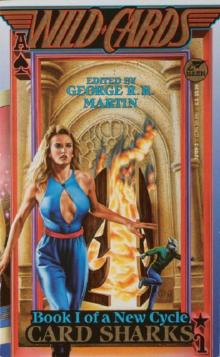 Wild Cards 13 : Card Sharks
Wild Cards 13 : Card Sharks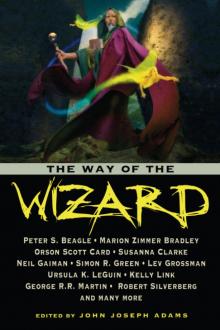 Way of the Wizard
Way of the Wizard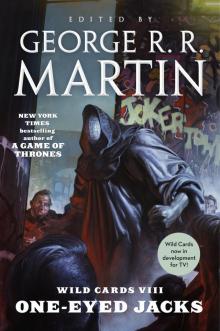 Wild Cards VIII: One-Eyed Jacks
Wild Cards VIII: One-Eyed Jacks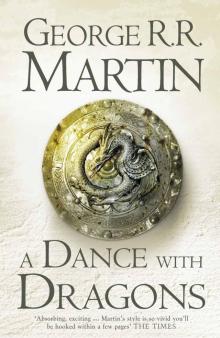 A Dance With Dragons: Book 5 of A Song of Ice and Fire (Song of Ice & Fire 5)
A Dance With Dragons: Book 5 of A Song of Ice and Fire (Song of Ice & Fire 5)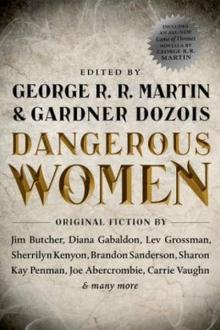 The Princess and The Queen, Or, The Blacks and The Greens (a song of ice and fire)
The Princess and The Queen, Or, The Blacks and The Greens (a song of ice and fire)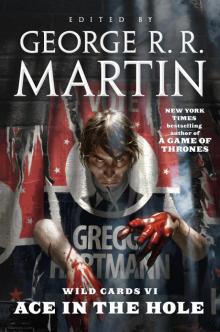 Wild Cards VI--Ace in the Hole
Wild Cards VI--Ace in the Hole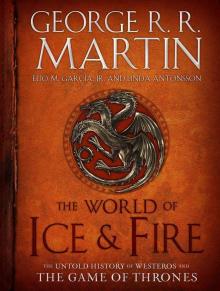 The World of Ice & Fire: The Untold History of Westeros and the Game of Thrones (A Song of Ice and Fire)
The World of Ice & Fire: The Untold History of Westeros and the Game of Thrones (A Song of Ice and Fire)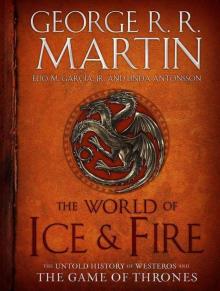 The World of Ice & Fire: The Untold History of Westeros and the Game of Thrones
The World of Ice & Fire: The Untold History of Westeros and the Game of Thrones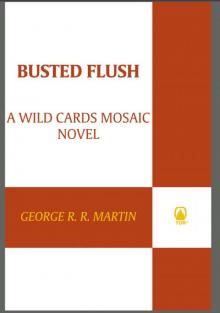 Busted Flush wc-19
Busted Flush wc-19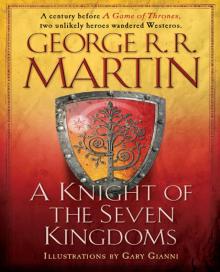 A Knight of the Seven Kingdoms
A Knight of the Seven Kingdoms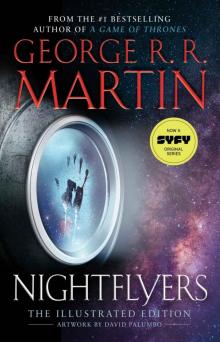 Nightflyers: The Illustrated Edition
Nightflyers: The Illustrated Edition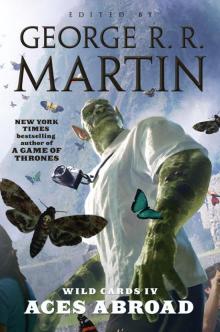 Wild Cards IV
Wild Cards IV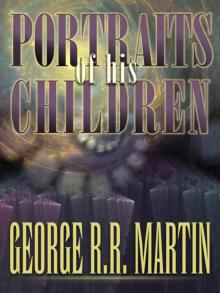 Portraits of His Children
Portraits of His Children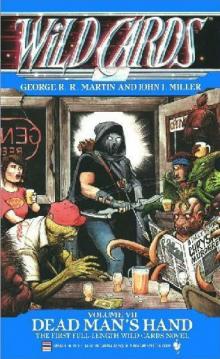 Dead Mans Hand wc-7
Dead Mans Hand wc-7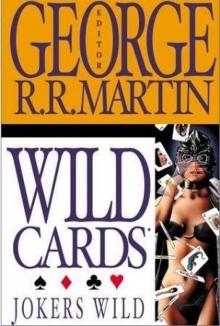 Jokers Wild wc-3
Jokers Wild wc-3 The Lonely Songs of Laren Dorr
The Lonely Songs of Laren Dorr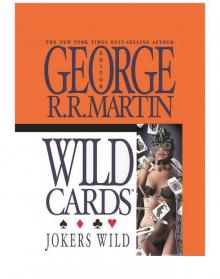 Wild Cards III: Jokers Wild
Wild Cards III: Jokers Wild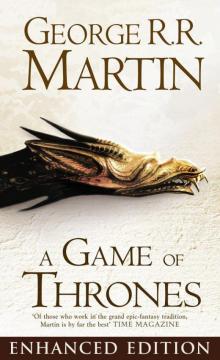 A Game of Thrones Enhanced Edition
A Game of Thrones Enhanced Edition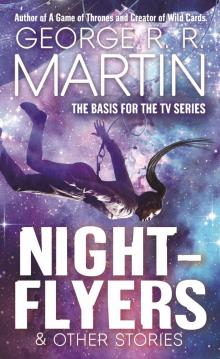 Nightflyers & Other Stories
Nightflyers & Other Stories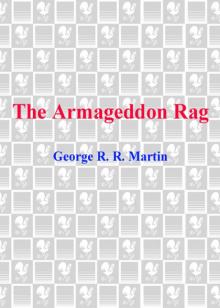 Armageddon Rag
Armageddon Rag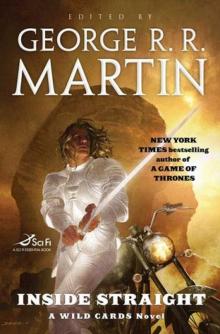 Wild Cards: Inside Straight
Wild Cards: Inside Straight A Song for Lya
A Song for Lya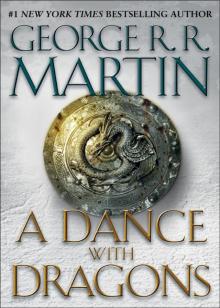 A Dance with Dragons: A Song of Ice and Fire: Book Five
A Dance with Dragons: A Song of Ice and Fire: Book Five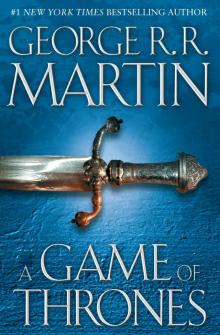 Song of Fire & Ice 01 - A Game of Thrones
Song of Fire & Ice 01 - A Game of Thrones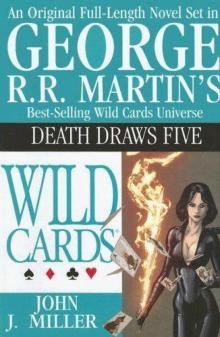 Death Draws Five wc-17
Death Draws Five wc-17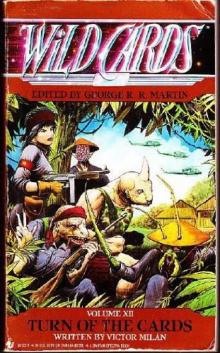 Turn of the Cards w-12
Turn of the Cards w-12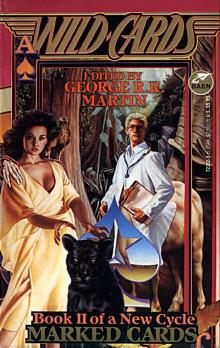 Wild Cards 14 - Marked Cards
Wild Cards 14 - Marked Cards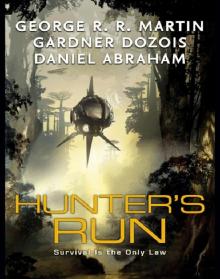 Hunter's Run
Hunter's Run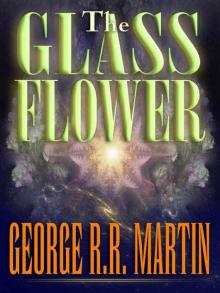 The Glass Flower
The Glass Flower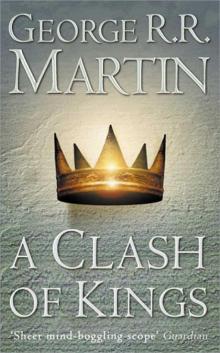 A Clash of Kings asoiaf-2
A Clash of Kings asoiaf-2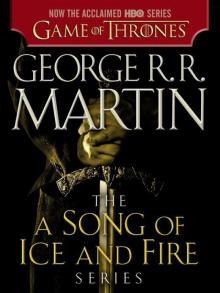 A Game of Thrones 5-Book Bundle: A Song of Ice and Fire Series: A Game of Thrones, A Clash of Kings, A Storm of Swords, A Feast for Crows, and A Dance with Dragons (Song of Ice & Fire)
A Game of Thrones 5-Book Bundle: A Song of Ice and Fire Series: A Game of Thrones, A Clash of Kings, A Storm of Swords, A Feast for Crows, and A Dance with Dragons (Song of Ice & Fire)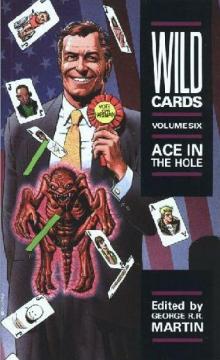 Ace In The Hole wc-6
Ace In The Hole wc-6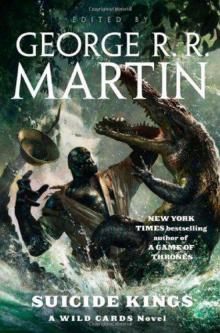 Suicide Kings wc-20
Suicide Kings wc-20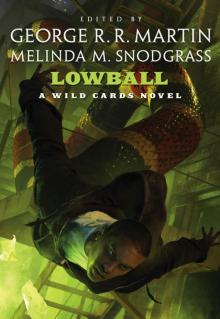 Lowball
Lowball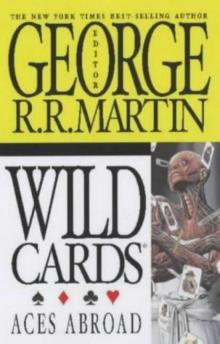 Aces Abroad wc-4
Aces Abroad wc-4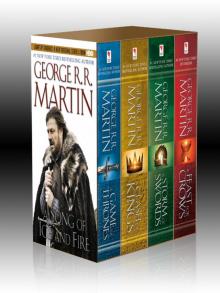 George R. R. Martin's a Game of Thrones 4-Book Bundle
George R. R. Martin's a Game of Thrones 4-Book Bundle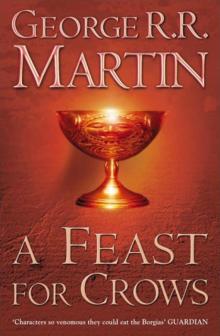 A Feast for Crows asoiaf-4
A Feast for Crows asoiaf-4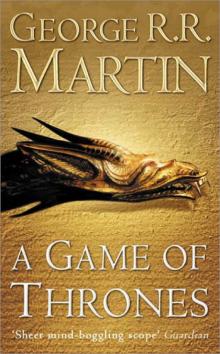 A Game of Thrones asoiaf-1
A Game of Thrones asoiaf-1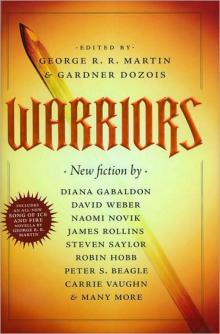 The Mystery Knight ttodae-3
The Mystery Knight ttodae-3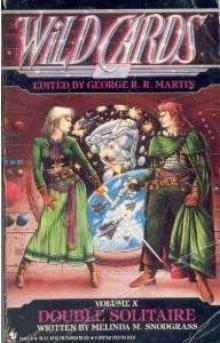 Double Solitaire w-10
Double Solitaire w-10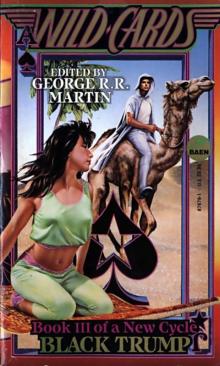 Wild Cards 15 - Black Trump
Wild Cards 15 - Black Trump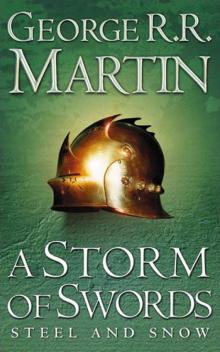 A Storm of Swords asoiaf-3
A Storm of Swords asoiaf-3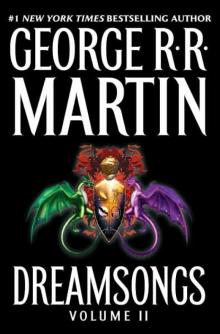 The Hedge Knight ttodae-1
The Hedge Knight ttodae-1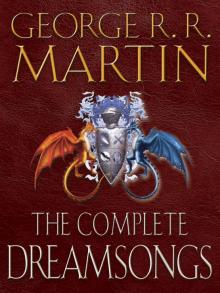 Dreamsongs 2-Book Bundle
Dreamsongs 2-Book Bundle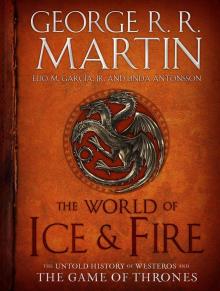 The World of Ice & Fire
The World of Ice & Fire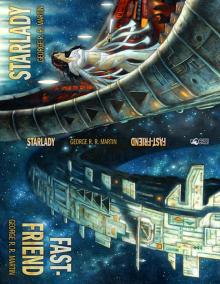 Starlady & Fast-Friend
Starlady & Fast-Friend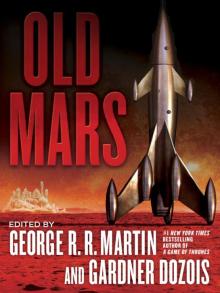 Old Mars
Old Mars Fantasy For Good: A Charitable Anthology
Fantasy For Good: A Charitable Anthology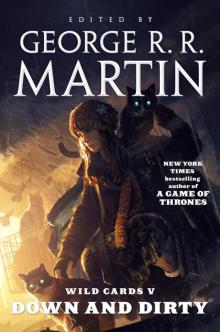 Wild Cards V
Wild Cards V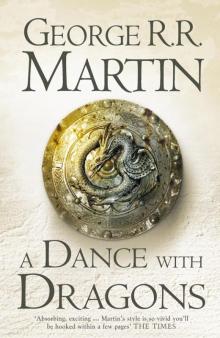 A Dance with Dragons asoiaf-5
A Dance with Dragons asoiaf-5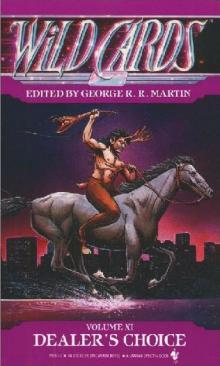 Dealer's Choice w-11
Dealer's Choice w-11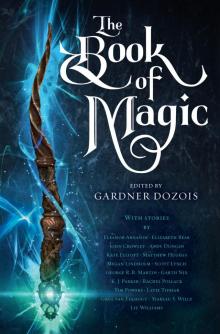 The Book of Magic
The Book of Magic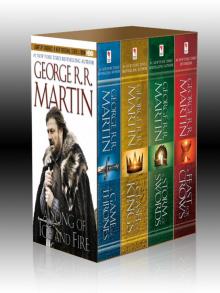 A Game of Thrones 4-Book Bundle
A Game of Thrones 4-Book Bundle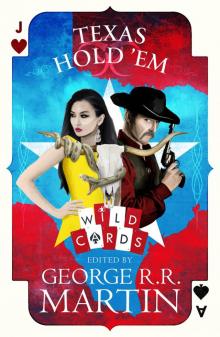 Texas Hold 'Em
Texas Hold 'Em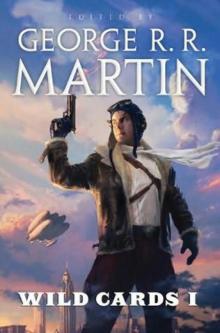 Wildcards wc-1
Wildcards wc-1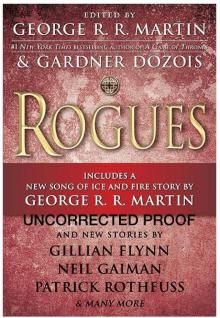 Rogues
Rogues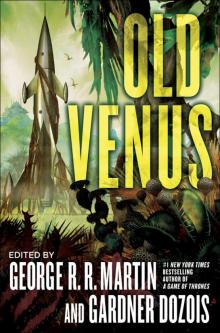 Old Venus
Old Venus